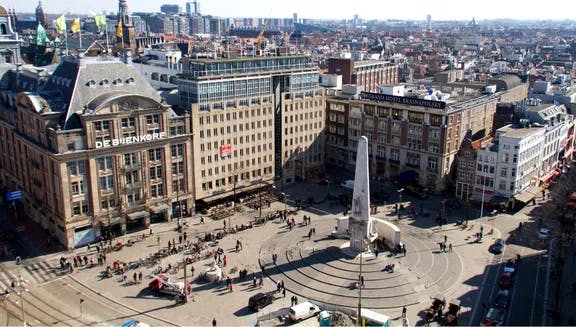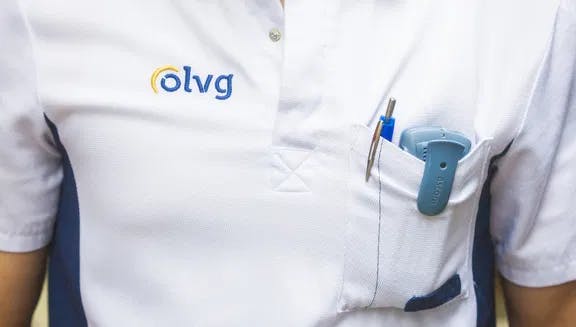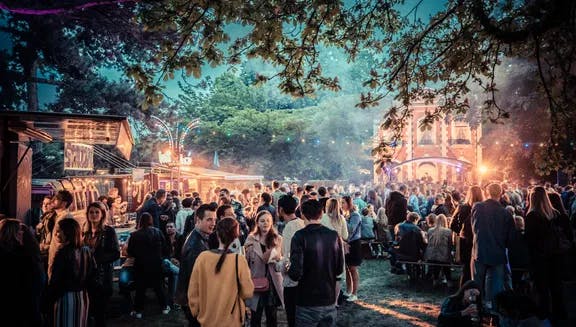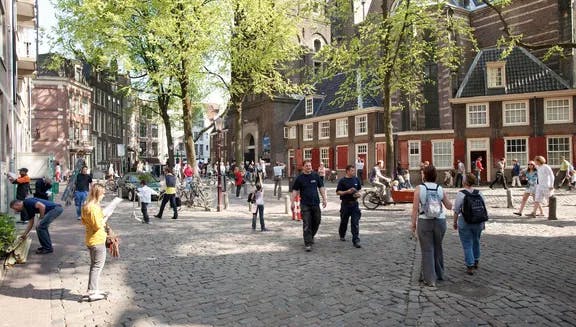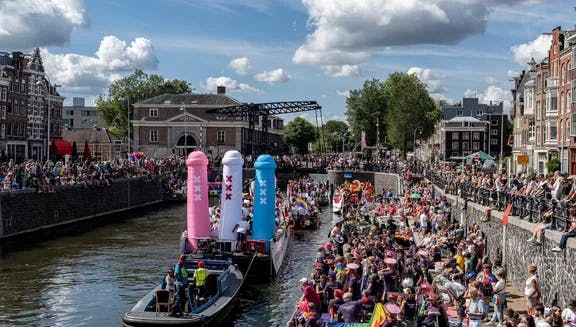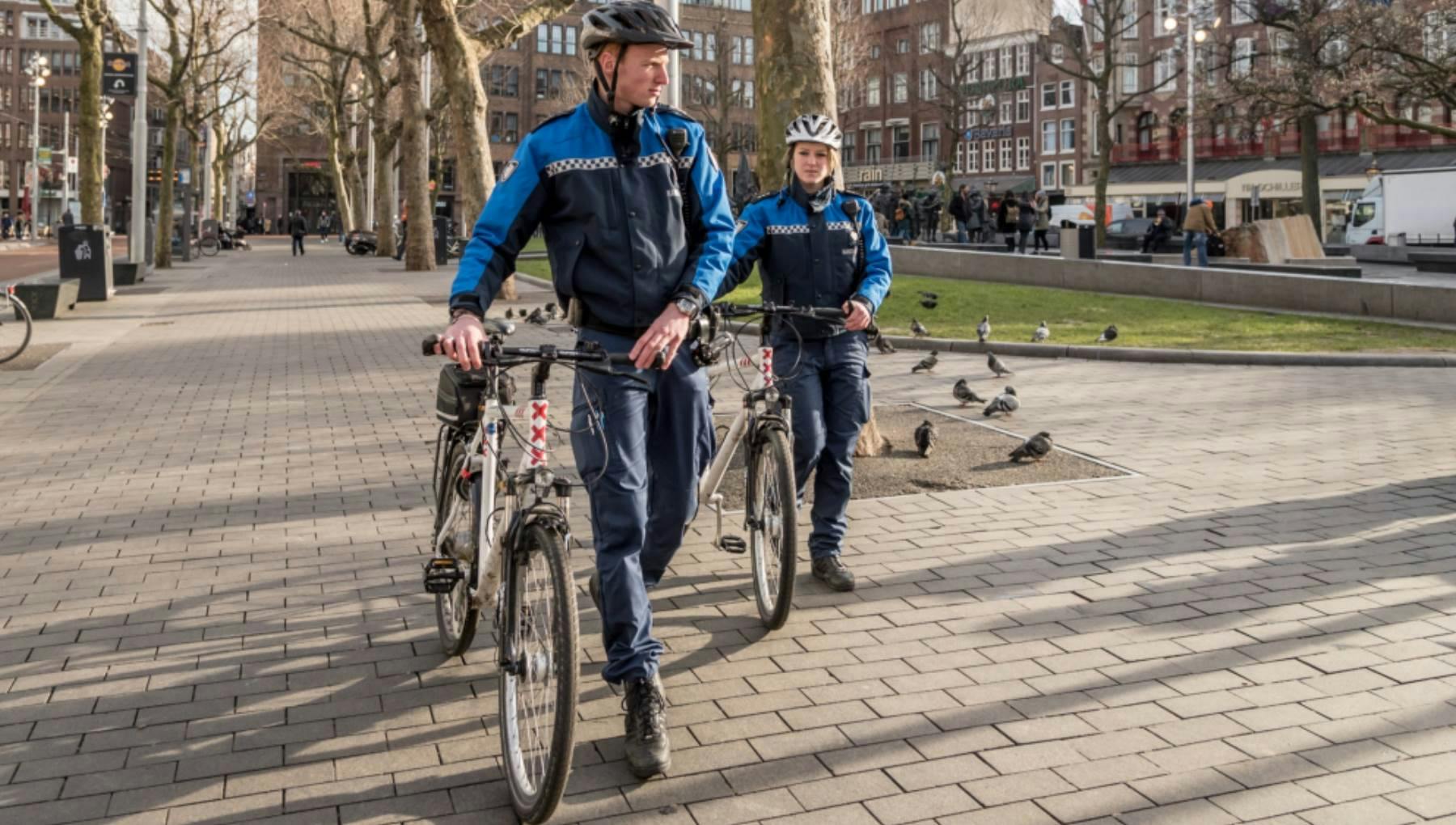
Health and safety in Amsterdam
Alcohol
The consumption of alcohol is prohibited in the majority of public places (especially in the city centre), but you are naturally welcome to visit one Amsterdam’s many bars. Never combine drugs with alcohol. For more information about health matters in the city, contact the Public Health Service of Amsterdam.
For serious drug and alcohol-related emergencies, seek immediate medical assistance. In the Netherlands, you cannot be prosecuted for offences related to taking drugs subsequent to visiting the emergency department.
Drugs
Purchasing and smoking soft drugs such as cannabis is only permitted in coffeeshops; individuals (aged 18 and above) are permitted to purchase a maximum of five grams a day. Purchasing or selling hard drugs such as ecstasy (MDMA), heroin and cocaine is illegal. Visitors are advised to ignore street dealers, as they can become aggressive and often sell fake or unsafe drugs.
If you are planning on trying soft drugs, research the subject in advance. Exercise caution and never combine drugs with alcohol. The Jellinek website is a valuable source of information.
Sex work
Window brothels, sex clubs and escort agencies can operate legally if they have been granted the relevant permits by the City of Amsterdam. Everyone is welcome to visit the Red Light District, although if touring the area, be respectful and don’t take photographs or record videos. If you decide to visit a sex worker, practise safe sex and never deal with sex workers under 21 years of age. Forced sex work is an extremely serious crime. Remain vigilant to indications of forced sex work (such as anxiety, bruises or willingness to have intercourse without a condom) and report any suspicions to the police by calling 0900-8844 /+31 343 578 844 or anonymously on 0800-7000 (from a Dutch phone).
Crowded areas
Some places in Amsterdam can get crowded, especially on weekends or during holiday periods. Follow our tips to skip the ticket booth queues, avoid the biggest crowds and experience some of the city's highlights on your own pace.
Pickpockets
As in all major cities, pickpockets are typically active in crowded places and cafés, bars and restaurants. Pickpockets are known to target major events. Mind your belongings carefully – take extra care of valuable items such as smartphones – and if possible, leave your valuables in a safety deposit box or safe at your hotel, or a locker at the station. It’s advisable to keep the amount of cash you carry with you to a minimum. If you are the victim of pickpocketing, report it to the police (see below).
Watch out for: Anyone attempting to distract you by pushing or touching you, often while asking for something such as a cigarette lighter or directions. A lot of the time pickpockets work in teams, look at each other and use signals to communicate. If a stranger is talking to you, be aware that it may be a form of distraction for his partner to pickpocket you.
Precautions for mobile phone thefts: Always take note of the IMEI number of your phone and report a phone theft immediately to the police so they can put this serial number in a national database for stolen phones. Install a 'find my phone' app on your smartphone, so its location can be traced.
Police
If you are a victim of crime, report it to the police. Either report the crime online via the (website in Dutch) or in person at a police station in the city (by appointment). The Dutch police website offers a search tool for police station locations. In emergency situations or to report a crime in progress, call 112. For non-emergency situations requiring police assistance or to make an appointment to report a crime in person, call 0900-8844 (if using a mobile phone with an international SIM card please dial +31 343 578 844).
Enforcement officials in Amsterdam
A common sight in Amsterdam, particularly around busier public spaces, train stations and in public transport, municipal enforcement officials (handhavers) represent the City of Amsterdam and are a visual presence on the streets, working to help make the city a safe and secure place. These enforcement officers are recognisable in their blue uniforms, with 'Handhaving' clearly written across the back and a reflective strip across the chest showing a black-and-white chequered design commonly associated with law enforcement (see the photo above).
The municipal enforcement officials are always happy to stop and assist locals and tourists on the streets of Amsterdam, be it to help with directions or questions about specific municipal matters. Examples of their daily tasks include issues such as car parking, illegal waste dumping, nuisance behaviour and illegal bike/scooter parking. They also have the power to request identification or issue fines/warnings for petty offences – in doing so, they free up the police to deal with more serious crimes. In matters of unsafe situations or illegality, the municipal enforcement officers can help to notify the correct authorities or the police. Learn more about the roles of the enforcement officers (in Dutch).
The municipal enforcement officers
Medical assistance
For emergency visits to your hotel room, telephone consultation and consultations on location, contact the hotel reception or call the tourist doctor on +31 (0)20 427 5011. Fees are determined by the national GP association and are covered by most travel and medical insurances.
For less serious issues – such as minor falls, forgotten medication or unexpected/recurring minor conditions – you can contact HotelDoc on +31 202 624 282. HotelDoc's medical professionals provide comprehensive in-room medical care for Amsterdam's visitors who want to bypass the inconvenience of hospital visits. For information on fees, visit the HotelDoc website.
Amsterdam's 24-hour dental clinic, Dental 365, treats patients experiencing chronic pain and other dental emergencies on a walk-in basis. The practice is open from 8:00 until 23:00, and a dentist is on call 24/7 for emergencies after these hours.
Be careful near the canals
The canals in Amsterdam are beautiful, but they can also be dangerous – and sometimes deadly. Accidents occur when people stumble too close to the water’s edge, and if you happen to fall in it’s not easy to climb back out due to the high walls and cold temperatures. Always mind your step when standing or walking near a canal or waterway, and pay close attention to your surroundings. Please note that it is illegal to urinate in the canals. Public urinals are widely available in Amsterdam, so always find a nearby toilet and stay safe.
Accidents can happen. If things do go wrong, take the following action:
If you fall in the water: Shout for help until you're seen. Try to hold onto something as best you can, such as the canal wall, a moored boat or rope.
If you see someone fall in the water: Assess the situation, check your location and let the person know you're getting help. Call 112 to notify the emergency services. If possible, throw a flotation aid to the person. If necessary, use a rope, stick or tie clothing together to help pull the person into the side. Ask for help from other bystanders – does anyone have first aid training, can someone go get help from nearby, or go fetch a rope, large stick or blankets?
Sleeping in cars
Sleeping in a vehicle is not permitted in Amsterdam for your own safety. A fine of € 140 can be imposed.
Useful phone numbers
Emergency (police, ambulance, fire): 112
Police (theft and other queries): 0900-8844 / +31 343 578 844
Tourist doctor +31 (0)20 427 5011
HotelDoc +31 (0)63 090 0346.
